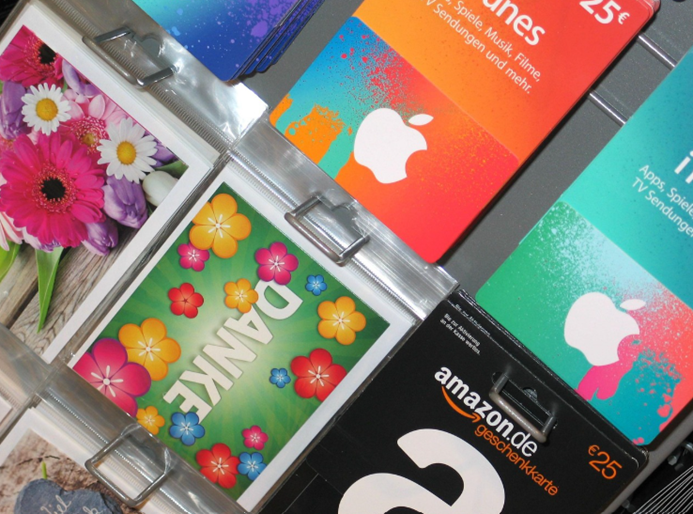
Perkbox is a rewards and recognition program that offers companies and their employees a way to deal with the high cost of living. Find out more in this article

Updated: May 20, 2025
Rising costs and shrinking wallets remain a concern for employees everywhere. According to a 2024 study, 60 percent of employees worry about their finances once a week. Twenty-one percent worry about money every day.
This is where rewards and recognition platform Perkbox comes in. It has positioned itself as a tool that offers cost-of-living support through its wide range of discounts and benefits. In this review, we’ll explore what Perkbox is about and what it has to offer. We’ll look at how it works, how it integrates with other HR systems, and what makes it stand out.
Perkbox is a rewards and benefits platform that motivates your employees through:
These are all housed on one platform, giving your HR team easy access to every feature.
Perkbox is part of HRD’s top 10 best employee rewards programs.
Perkbox supports your company’s rewards and recognition and well-being efforts through these channels:
Let’s take a closer look at each to better understand how Perkbox works.
With this feature, you can:
You can get detailed reports on employee usage of this tool. Perkbox’s data can show you:
Under this perks and benefits feature, your employees can enjoy Flexi Perks. This allows them to use points for a gift or reward of their choice. They can use the points right away – for a daily latte, for example – or save these toward a bigger expense.
Perkbox’s well-being support module provides a wide range of on-demand content to support your team’s mental and physical health. It caters to the needs of all employees and includes the following:
By taking care of your employees’ well-being, you can also improve engagement levels.
Perkbox’s reward platform allows you to give employees digital points that can be redeemed for over 8,500 rewards, including physical products and gift cards.

Under this feature, you can:
Anyone with Perkbox admin access can purchase points via credit card or bank transfer. Admin can allocate these points to your managers/team leaders. They can then use these points to reward their team members.
This Perkbox feature allows employees to recognize their peers through a personalized message. Just like with rewards, these messages can be linked to a company value to further strengthen corporate culture.
Managers and team leads can also attach points, giving their team members the option to choose from products, vouchers or gift cards.
Make sure your employees are on the same page – literally – by having all company updates and announcements on one platform.
With Perkbox, you can:

Admin features
HR officers with admin permissions on Perkbox can manage settings and functions for all modules – perks, wellbeing, rewards, recognition, culture – in one central area. Other features that simplify platform management include:
The admin function also allows you to view reports across modules. You can go for a big-picture view or go into more detail, depending on what data you need. This way, you’ll see first-hand the impact that a benefits and rewards platform like Perkbox is making on your workforce.
These reports can, for example, show you how much your employees use Perkbox and how much they’ve saved.
Perkbox integrates with other tools and platforms so there’s no need to change your existing HR or IT setup.
|
Okta |
Google Workspace
|
|
Microsoft Azure
|
JumpCloud
|
|
VM Ware |
OpenID
|
|
OneLogin
|
Oracle Cloud |
With SSO, logging in becomes an easy yet secure process – no need to remember separate passwords across platforms.
|
Workday
|
HiBob
|
|
BambooHR
|
Microsoft Azure
|
|
Okta
|
Google Workspace
|
|
Fourth
|
Rippling
|
With directory syncing, you can add/delete users and activate/deactivate accounts as part of your onboarding and offboarding processes.
Perkbox does not provide pricing information, which is a common practice for most HR software service providers and sellers. The website’s pricing page has a contact sales form where you’ll need to give details such as your name, phone number, email, and company size.
We filled in the form and got a call the next day from a Perkbox R&R and benefits strategist. He went over some questions we had, some of which were about pricing.
Perkbox pricing varies depending on company size. Here's a ballpark figure: a company with 25 employees can expect to pay around AU$15 per employee per month. This amount comes with all the modules we discussed earlier.
For more accurate figures based on your company size and needs, contact the Perkbox sales team via the pricing page on their website.
The Perkbox support team is available via web chat, web call, or email. They operate on UK time: Monday to Friday, 9am to 5pm GMT. Their contact page has a form that you can complete, should you need help.
The website also has a section on Q&As and articles to support clients with troubleshooting and self-help. We looked around and found the Perkbox launch guide to be informative and helpful.
From what we’ve seen, Perkbox has two features that caught our eye:
One unique feature of Perkbox is the ability to include a values tag in the recognition and rewards modules. This helps organizations reinforce their company culture by recognizing employees who practice these company values. It also helps people see if their employer “walks the talk” as far as values go.
Here’s a snapshot of how that works:
Recognition is a form of feedback, which is one of the ways to build a healthy company culture.
Perkbox has taken the approach of dealing with cost-of-living crisis through perks and discounts to help stretch employees’ salary. This is an effective strategy, as it addresses a major pain point of employees everywhere.
In a survey done in Australia, three out of four employees felt that their income has not caught up with rising costs. By offering freebies and discounts on food, clothing, and groceries, Perkbox helps employees make the most of their budget.
On their success stories page, each case study describes how their clients use Perkbox and how these translate into savings. Case in point: healthcare company Medichecks shows a 99 percent activation rate and £14,000 (around $18,000) in savings.
Year established: 2015
Size (number of employees): between 51 and 200 (LinkedIn)
Global locations: UK and Australia
Businesses served: 4,000+
Key people: Doug Butler (CEO), Ankur Sharma (chief product and technology officer), Natalie Jutla (head of financial wellbeing and workplace strategy), Louis Kwakye (Group CRO)
Perkbox started out under a different name: Huddlebuy, a group discount platform for small businesses, co-founded by Saurav Chopra and Chieu Cao. After trying different approaches and learning from early challenges, the founders shifted their focus to employee engagement. Perkbox was officially launched in 2015.
In March 2024, Perkbox announced its merger with UK-based employee benefits platform Vivup. The goal was to bring together Vivup’s public sector reach and well-being services with Perkbox’s global rewards and recognition tools.
Together, Perkbox and Vivup support over 4 million employees across 7,500 organizations. This includes 85 percent of the UK’s National Health Service (NHS).
Visit our Best in HR special reports page for a look at other rewards and recognition programs.
Perkbox is a rewards and recognition platform that also includes tools for culture and communication, and a dedicated well-being platform. While Perkbox is available worldwide, customer support operates only during business hours GMT. This could put organizations on the other side of the globe at a disadvantage.
Consider these factors when deciding to go with Perkbox. Test the platform yourself by requesting a sales call and demo. If Perkbox isn’t a good fit, read our reviews of other benefits and rewards programs to widen your options:
Make sure that the brand you choose has a robust rewards program that can support and motivate employees. If it can help ease the strain of the cost-of-living crisis, that would be a welcome bonus.
Would you consider Perkbox for your organization? Let us know why (or why not) in the comments below